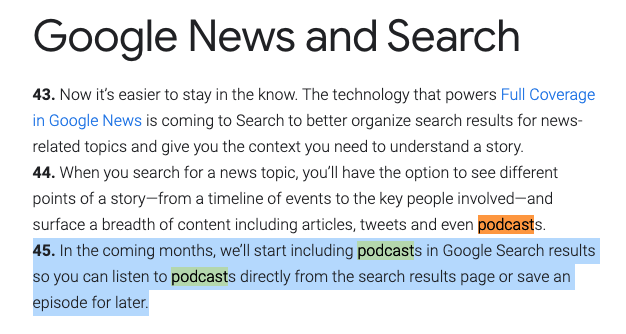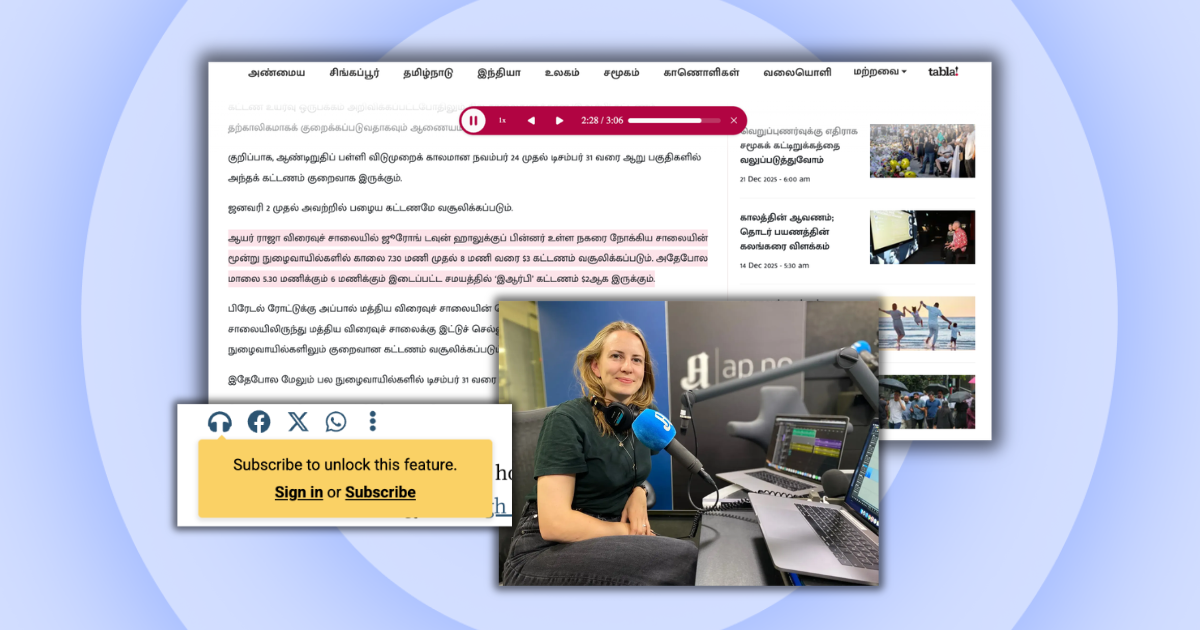What is audio SEO?

Please note that this post was published before SpeechKit rebranded to BeyondWords.
SEO is the favorite topic of internet marketers. We write about SEO in the hope of improving our SEO. Like website Inception—search term dreams within search term dreams—or a nightmare of post after post of rambling nonsense.
However, search engine optimization is important!
Search has become one of the most crucial entry points of news in recent years. The largest search engine, Google, has come under major scrutiny from publishers. Indexing on Google can determine the revenue of those sites that it either ranks higher or lower.
Introducing audio SEO
Back in May 2019, at Google’s I/O conference, the company made a series of announcements about podcasts. In the gist of it, they announced that they would begin to serve podcasts in Google search, allowing users to play audio right there on the website.

This is big news for podcasts due to the massive traffic that comes to news from search. Audio Articles could now start to compete with text articles within search.
And this is great news for any website publishing audio articles!
Publishing audio articles can now help you make gains with Google’s algorithm. Much like how posting content on syndicated sites can push your results to the top of the page—podcasts can now influence Google rankings. The more rich content associated with your domain the better!
This is another subtle step towards the integration of voice into every corner of our consumer lives. And like all things SEO it’s imperative to get ahead of the curve now!
Tips for audio SEO
Here are our top tips for audio SEO:
1. Sign up to SpeechKit
SpeechKit allows publishers to instantly create podcasts of their text existing articles. Audio editions of articles are published as podcasts using our WordPress plugin, RSS or API integrations.
2. Write SEO friendly podcast descriptions
In SpeechKit’s distribution panel you can set up a podcast feed. From the distribution tab select podcast feed and fill out the form. You’ll want to make sure that your title uses keywords that you associate with your site’s content. This too goes for the podcast description. There are many tools out there to help find the best keywords—one we use is Semrush.
3. Get your podcast live on the stores
SpeechKit provides a unique podcast RSS feed for every podcast that meets the requirements of all popular podcast stores. You can now take this feed and create accounts with Apple Podcasts, Spotify, or wherever else you choose. Google Play for podcasts is only available in selected countries. Yet, this will not affect your podcast's ability to get ranked on the search engine.
You’ve now optimized for audio SEO!
Now that your podcast is out there, do whatever you can to get it listened to. Repost podcast episodes on social media, embed it into your website, have others post it too. The popularity of the podcast will help your search engine ranking. And remember to stick a SpeechKit player atop each article!
More about SpeechKit
At SpeechKit, we’re helping hundreds of news publishers to automate audio versions of their news articles.

